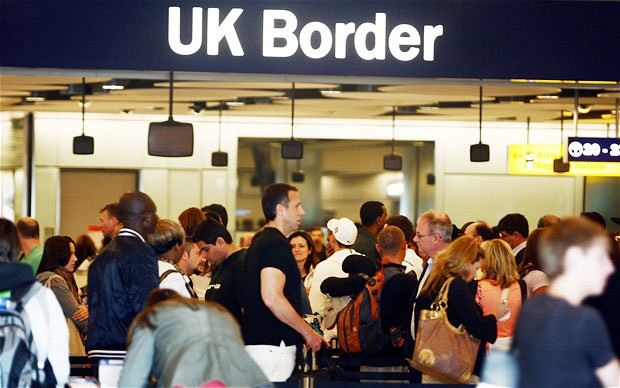Immigration from outside the European Economic Area (EEC) cost the UK economy £118bn between 1995 and 2011, researchers from University College, London have found. The EU-sponsored report also found that migration from EEC countries brought net economic benefit in just seven of the 17 years studied, yet the authors have chosen to stress the benefits of European migration as their main finding.
The paper, due to be published in the Economic Journal, reports that the net contribution from European migration amounts to just £4.4bn over the 17 year period – although this has not stopped the authors cherry picking data, presenting a gain of £20 billion between 2001 and 2011 as their main finding.
Also buried in the report is the overall cost of migration to the UK: estimated to be between £114bn as a best case scenario, and £159bn at worst, as the bill for migrants accessing public services such as the NHS, education, infrastructure and benefits was higher than the amount paid by the group in taxes.
Commenting on the findings, Sir Andrew Green, chairman of Migration Watch UK said: “This report confirms that immigration as a whole has cost up to £150bn in the last 17 years. As for recent European migrants, even on their own figures – which we dispute – their contribution to the exchequer amounts to less than £1 a week per head of our population.”
Native Britons also made a net negative contribution over the period, taking £591bn more in benefits and public services than they paid in in taxes and fuelling British debt. The paper has used this figure to cast aspersions on the native population in comparison to European migrants, claiming that European workers are better educated and harder working than the local population.
But Migration Watch has pointed out that the comparison is unfair, as it pits predominantly working age economic migrants against the British population as a whole, including pensioners. “Official statistics show that in the UK as a whole, working households without children actually contribute twice as much in tax as they receive in benefits. The assertion we hear so often that migrants in general and Eastern European workers in particular contribute far more than their UK-born counterparts is simply not comparing like with like and certainly not demonstrated in any way by this paper,” a spokesman for Migration Watch said.
Meanwhile, the huge cost of non-EEC migration has been simply glossed over. The press release that accompanies the paper makes no mention of the £117.9bn deficit this group has cost the UK economy. Buried within the paper is the admission that “Immigrants from non-EEA countries … contribute less than they receive.”
Last year, a first draft of the report was used widely to promote the economic benefits of migration, yet a 2008 House of Lords research committee pointed out that, per capita, GDP has not risen despite nearly 4 million people arriving in the UK between 1997 and 2010. John Wakeham, who chaired the committee’s enquiry on immigration wrote in the Guardian: “In percentage terms, immigration has increased Britain’s population almost in step with the impact on GDP. So the effect on GDP per head has been roughly zero.”
In 2007, Migration Watch studied the benefits of immigration and found that the main beneficiaries were immigrants themselves, who were able to send about £10m a day back to their home countries.
The report is the work of the Centre for Research and Analysis of Migration (CReAM), based at University College, London. CReAM draws funding from a number of sources, including the European Research Council, a research committee founded by the European Institutions with a €7.5billion budget granted by the European Council.
Another funding source is the Norface Research Program on Migration, a research partnership between the European Commission and a number of member states. One of the paper’s authors, Christian Dustmann, works directly for Norface.
With the British population predicted to grow by 9.4million in the next 24 years – equivalent to the populations of Birmingham, Leeds, Sheffield, Bradford, Manchester, Edinburgh, Liverpool, Bristol, Cardiff, Newcastle, Belfast and Aberdeen – it is perhaps little wonder that CReAM avoided their more accurate acronym: ‘CRAM’.

COMMENTS
Please let us know if you're having issues with commenting.